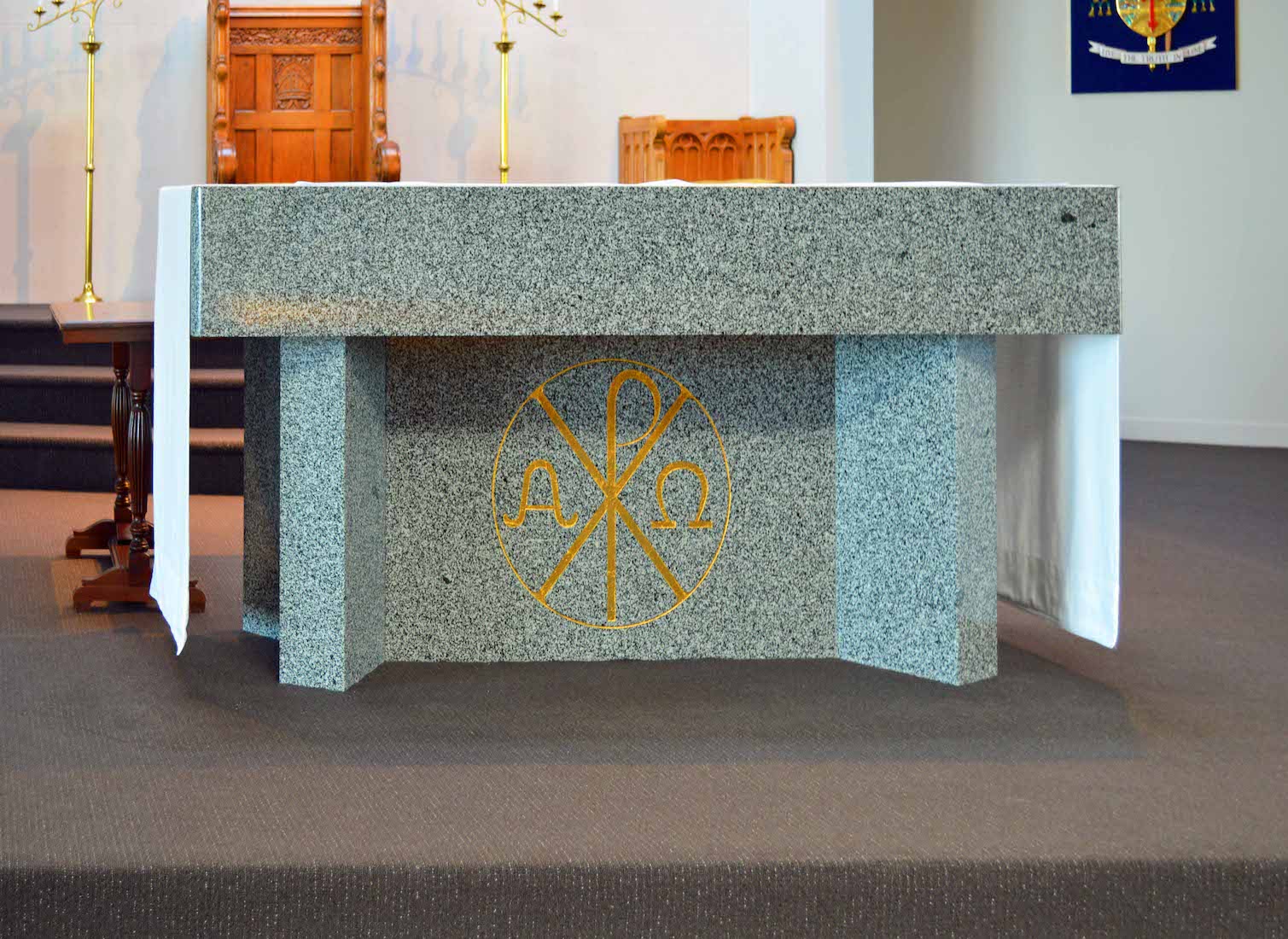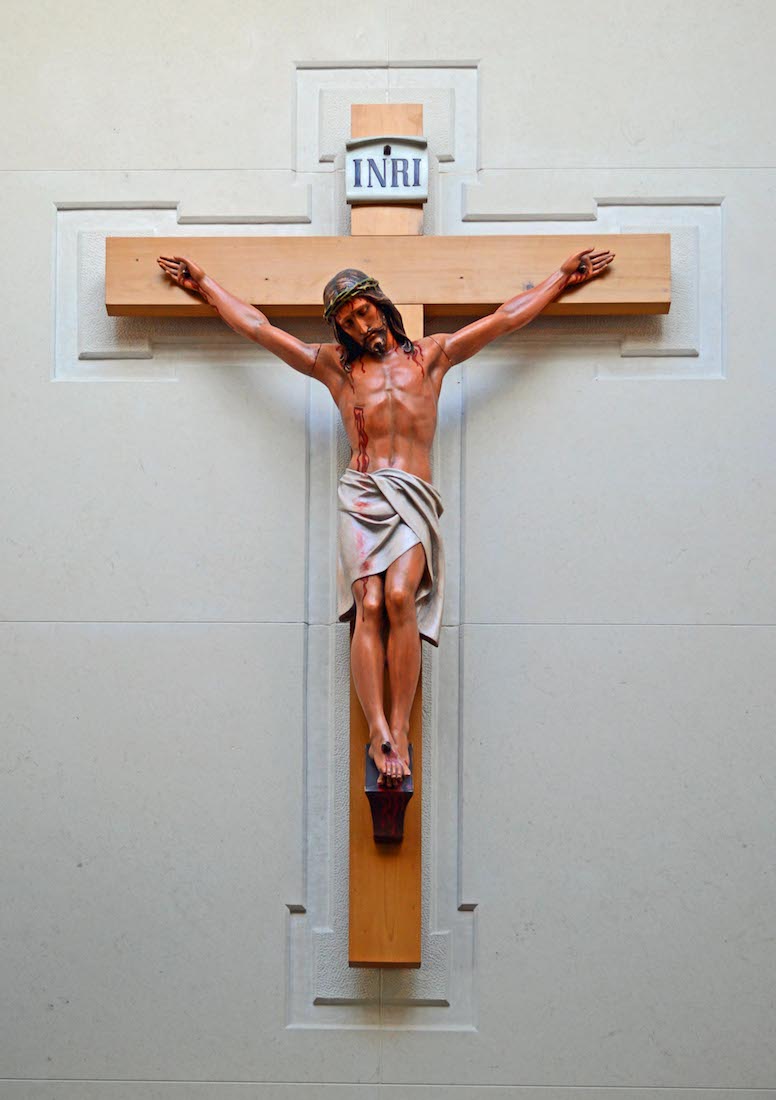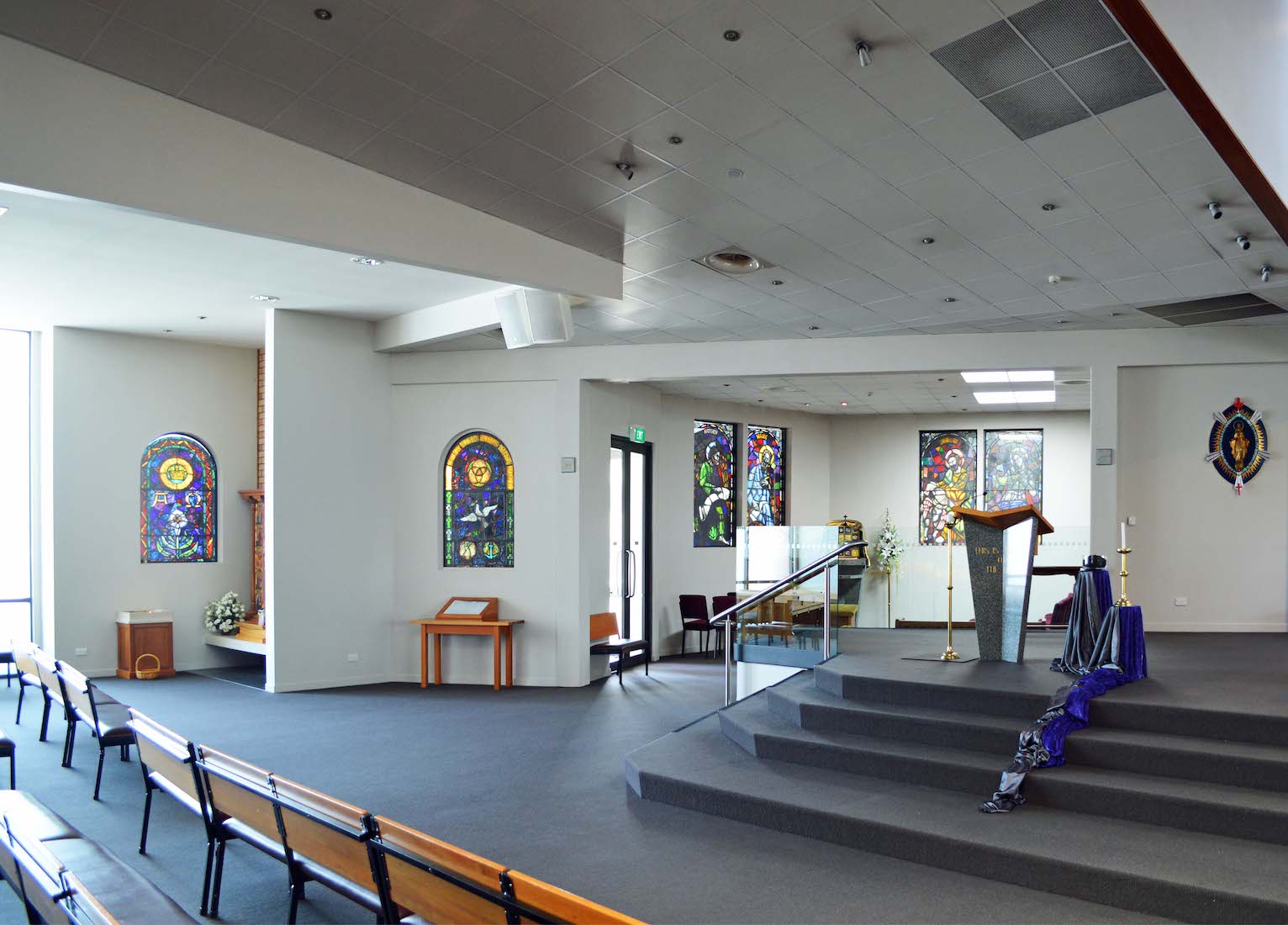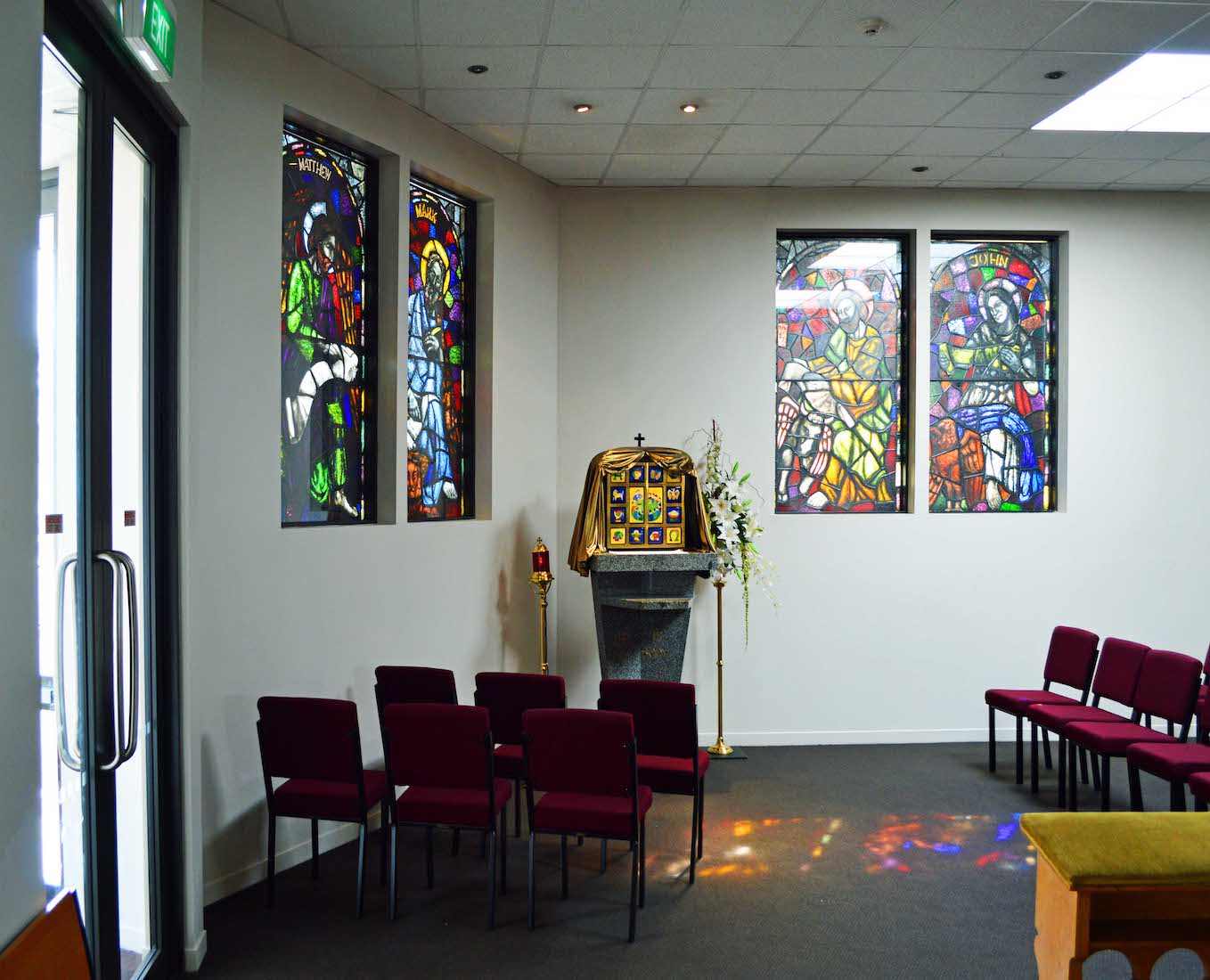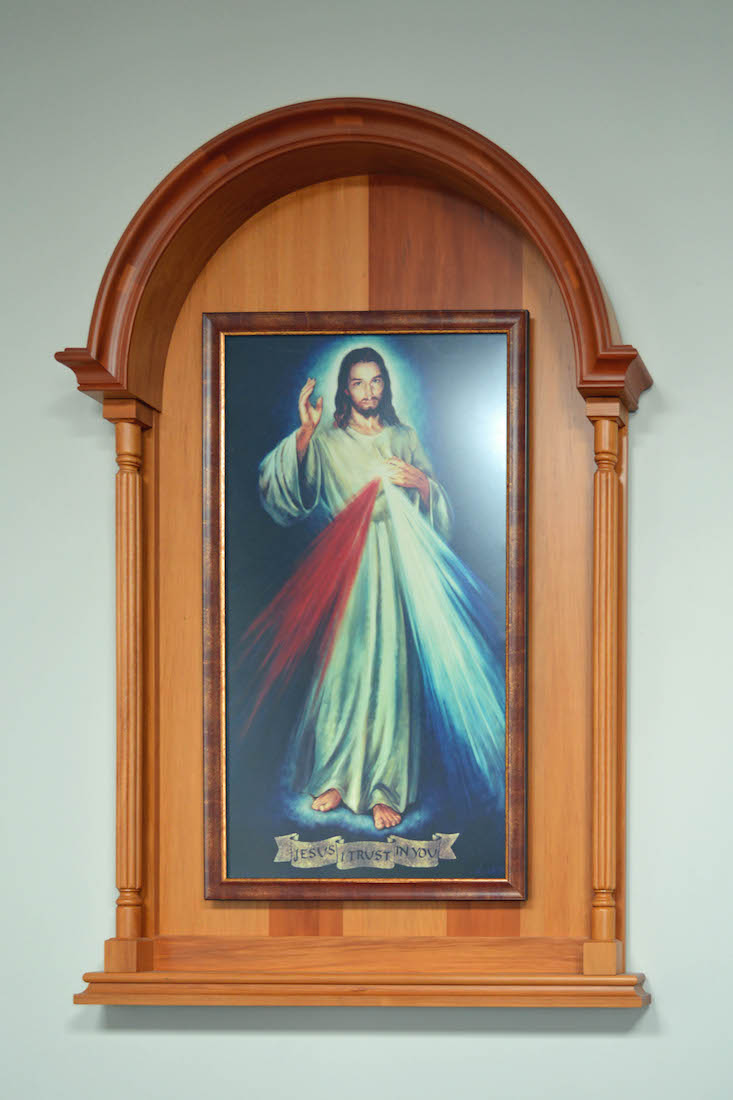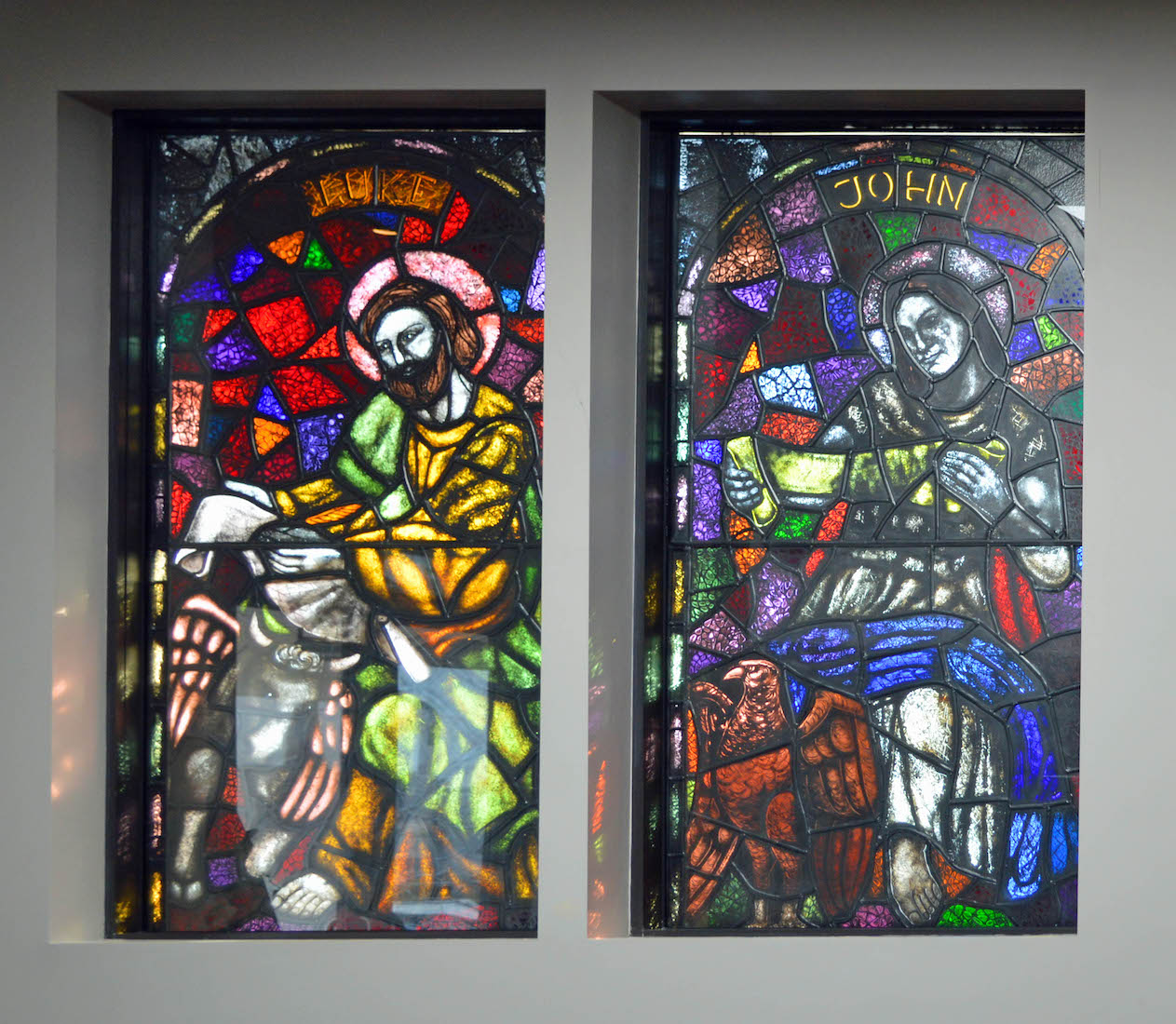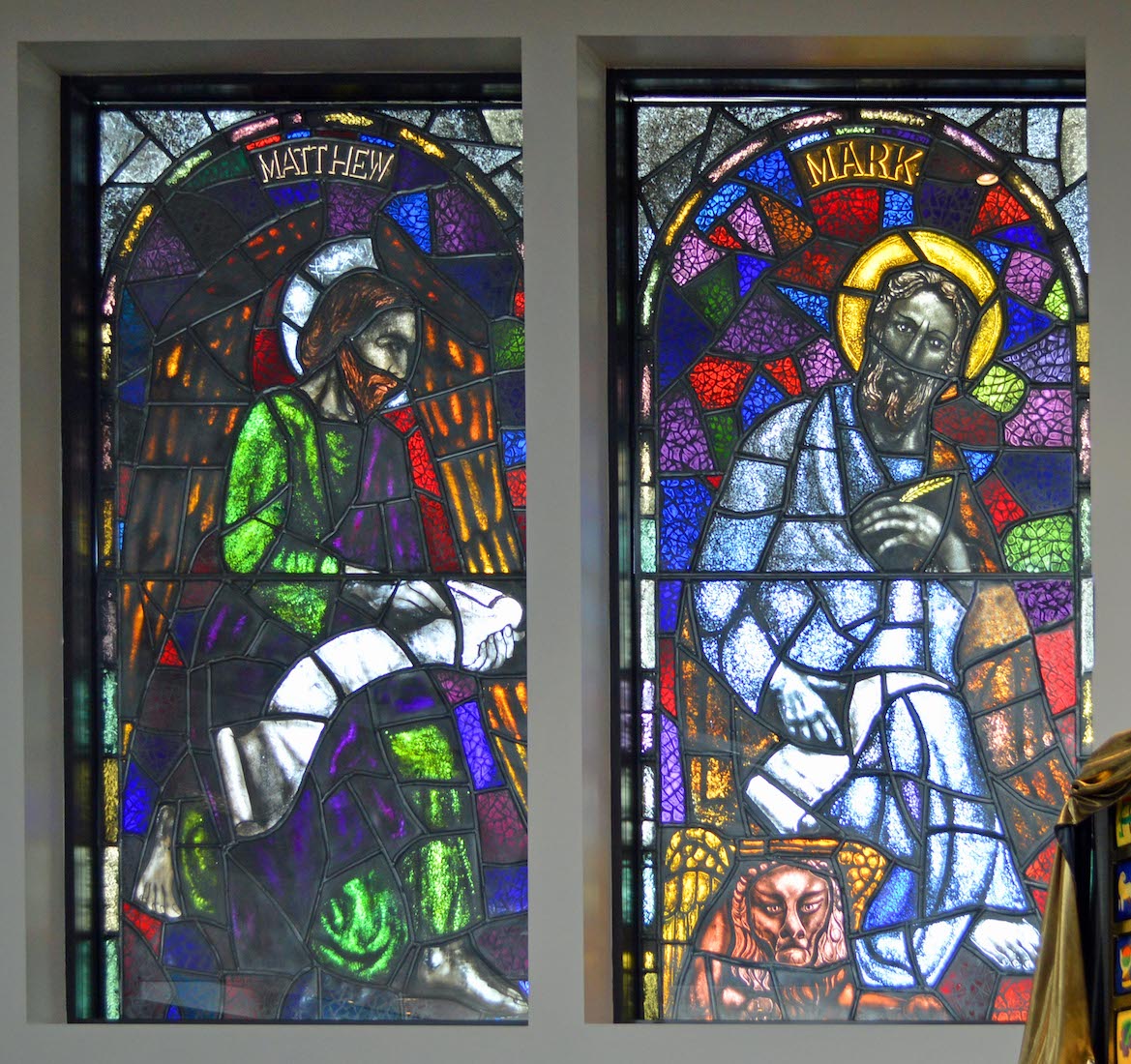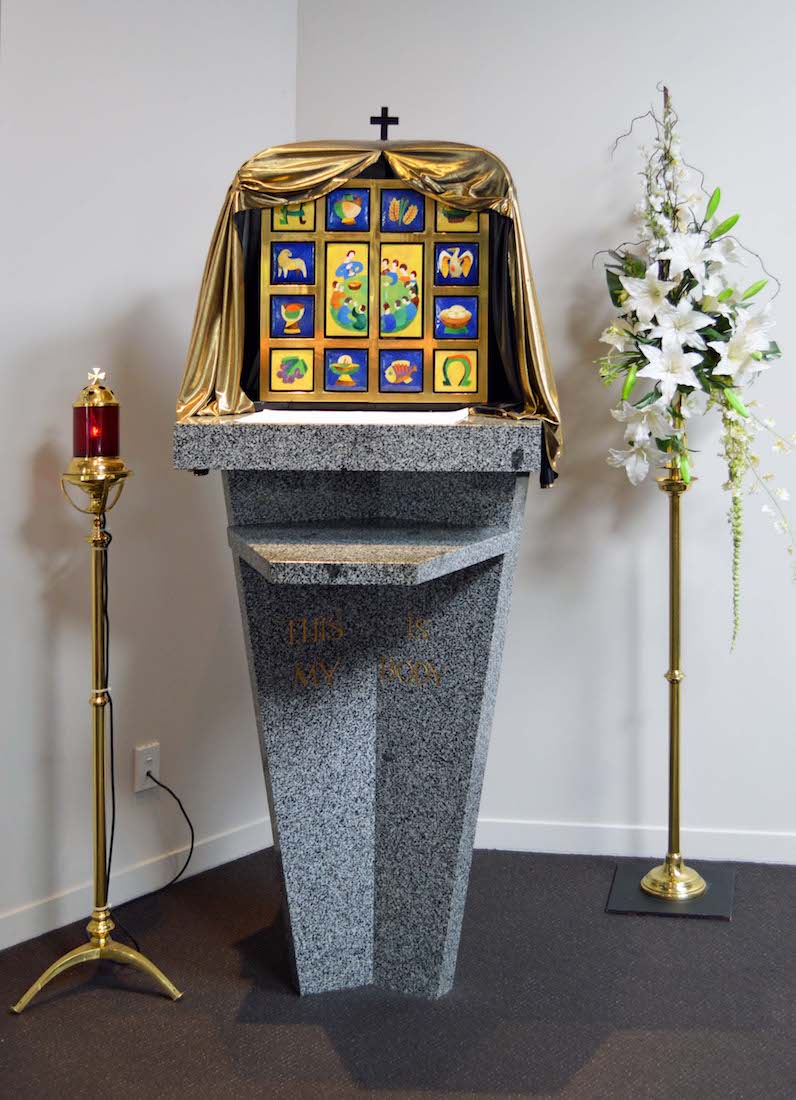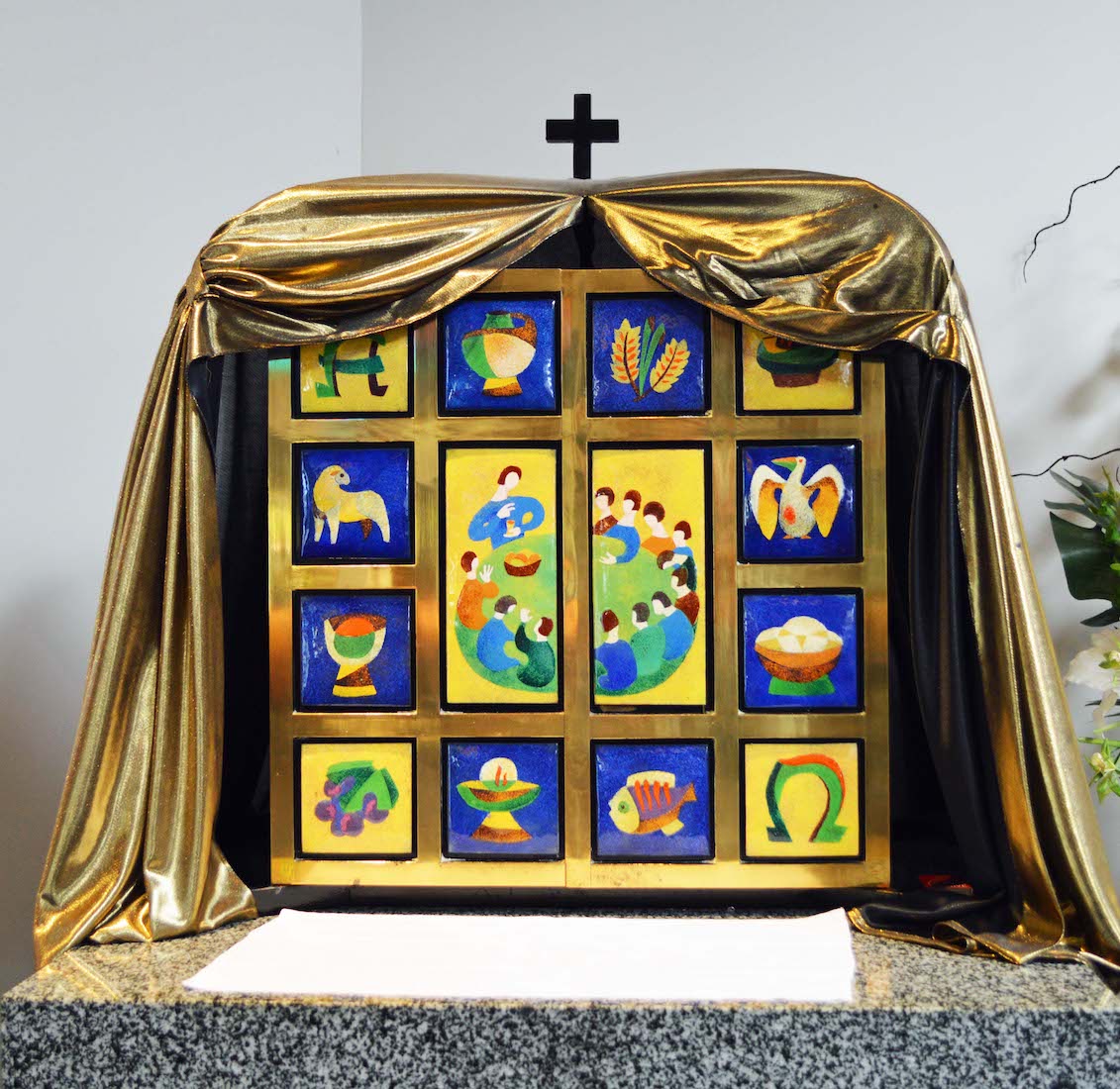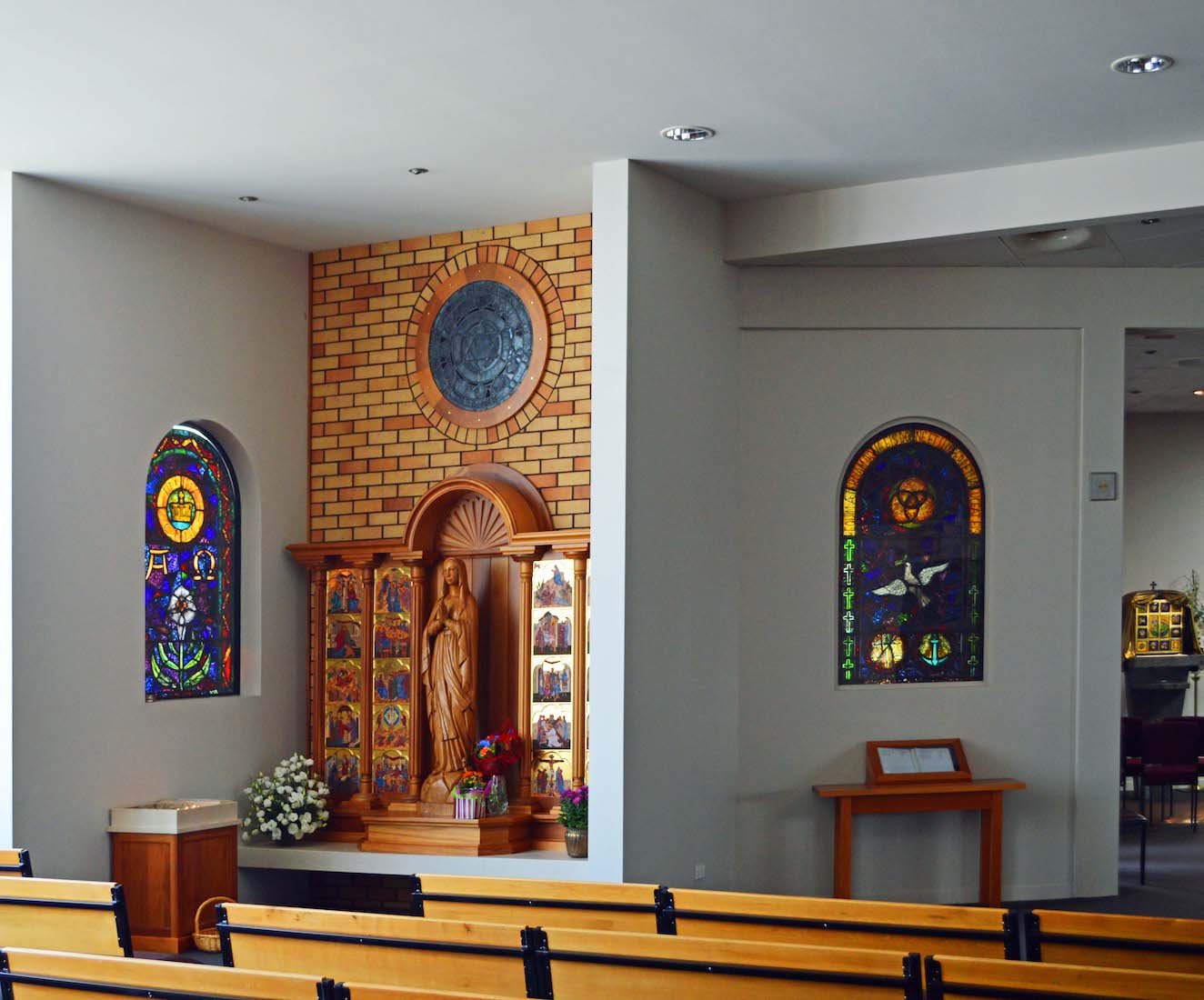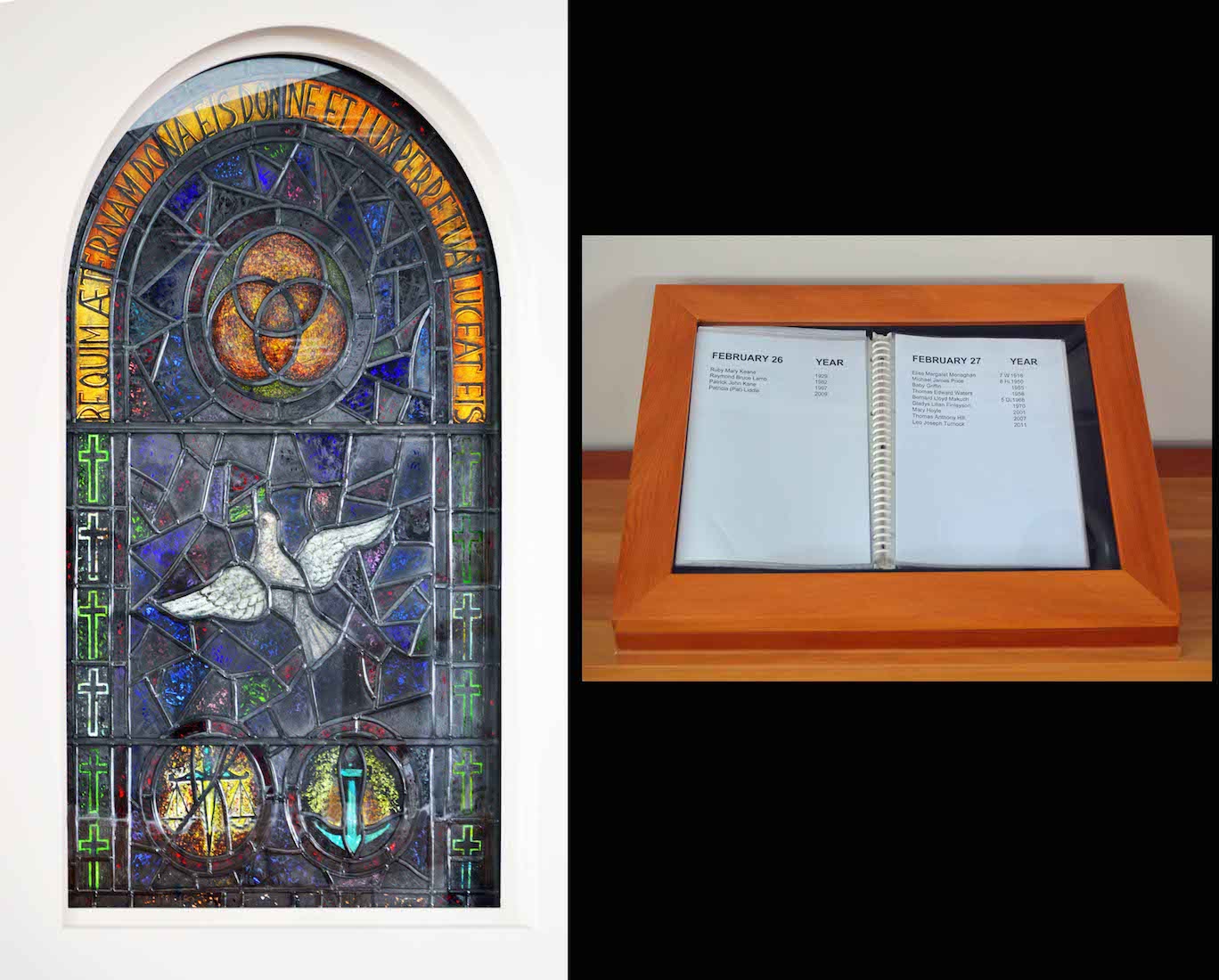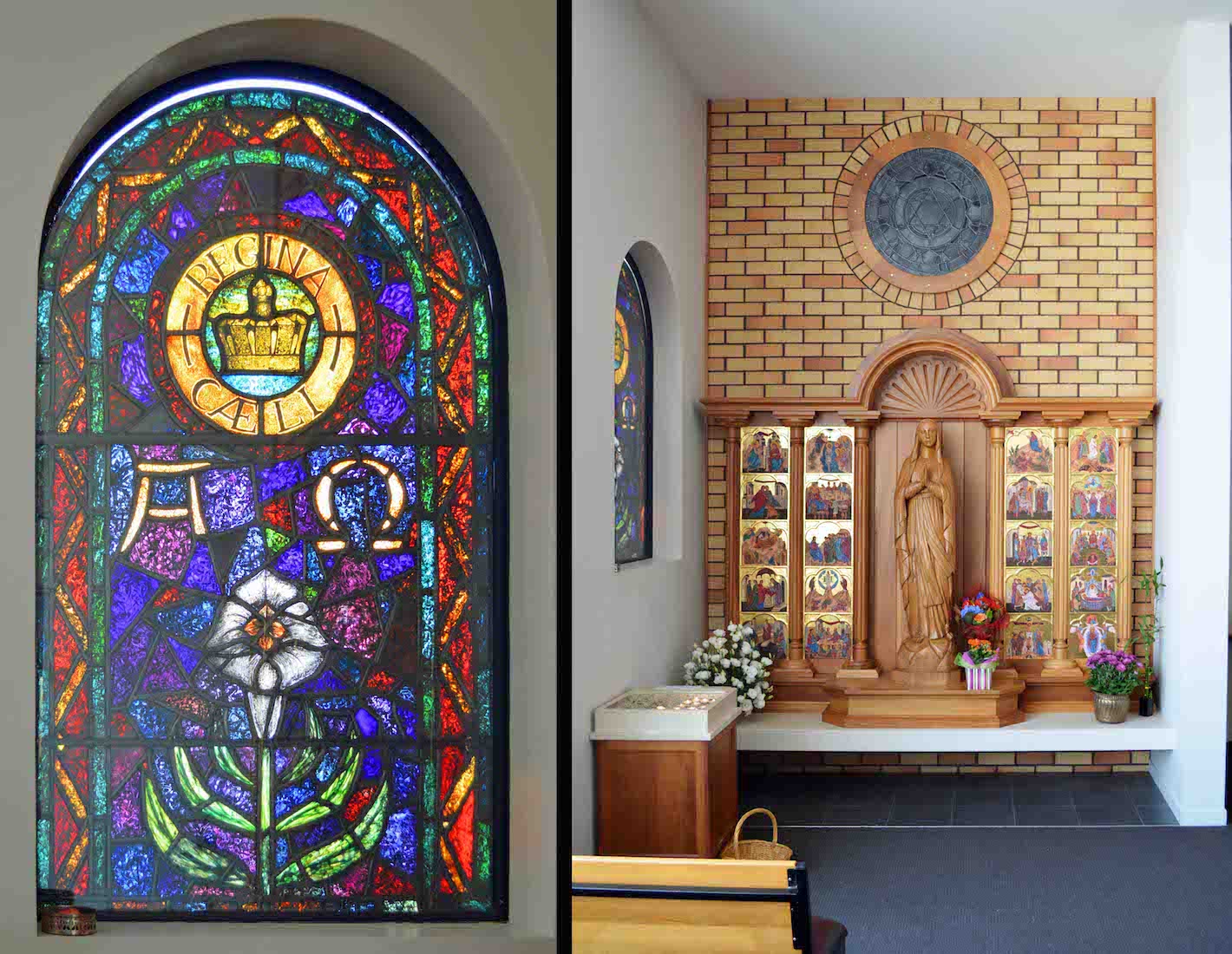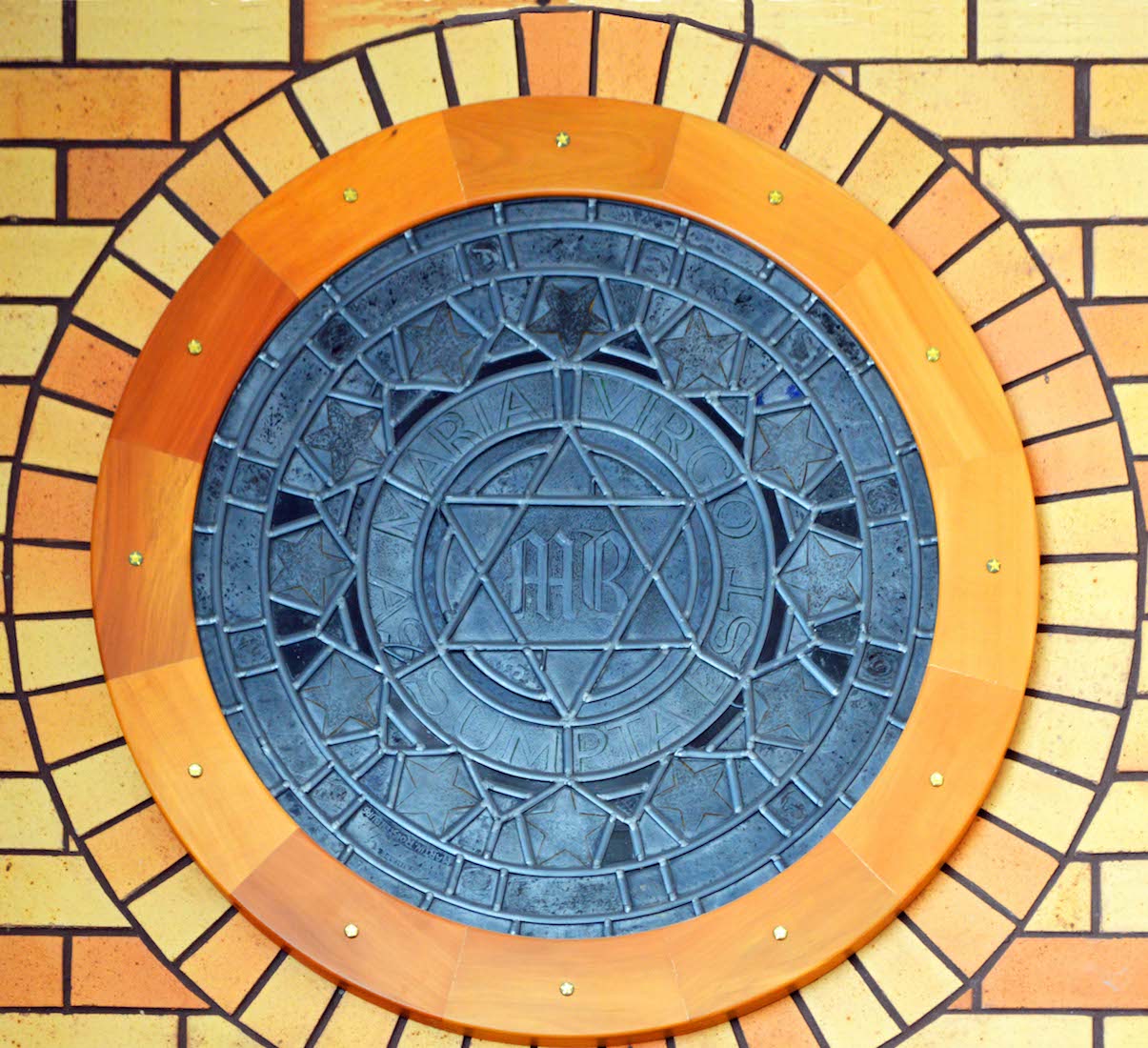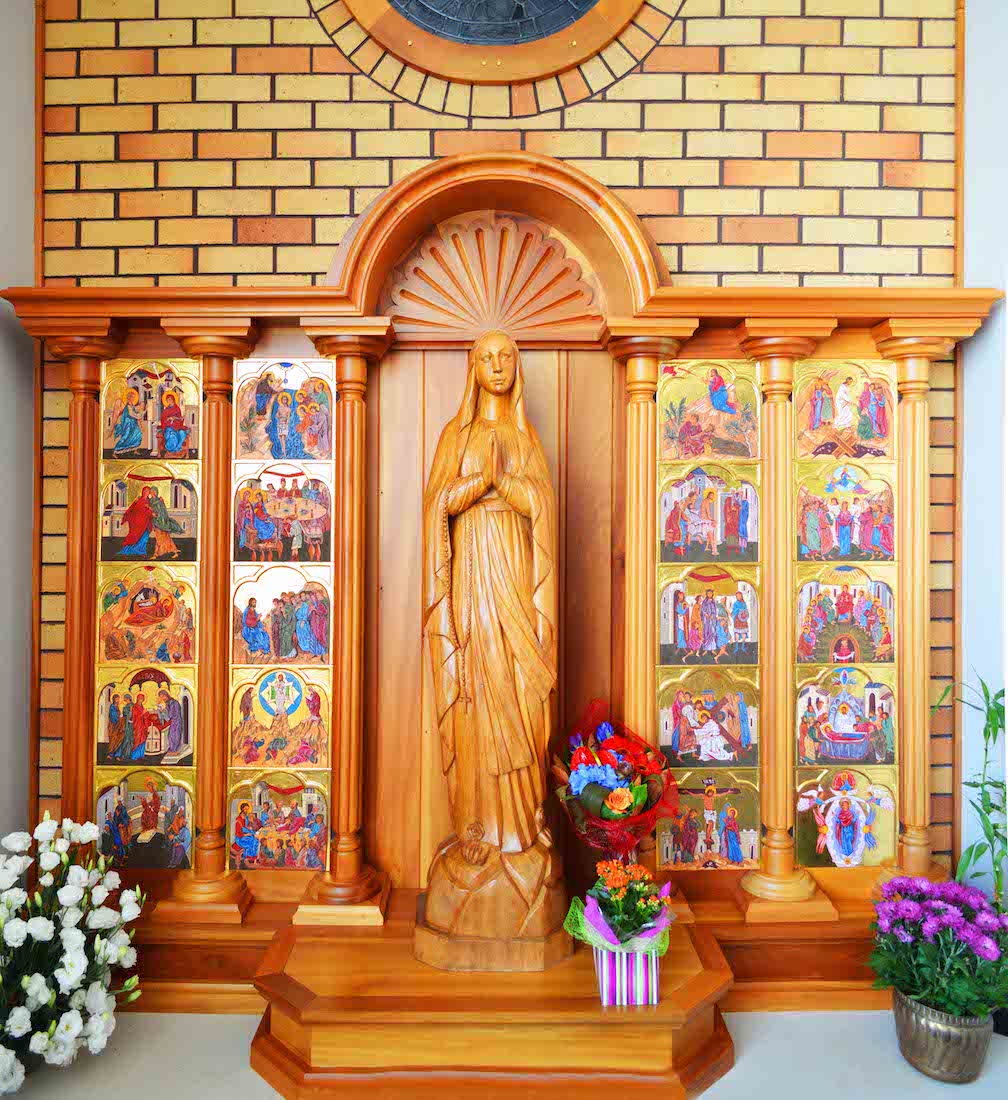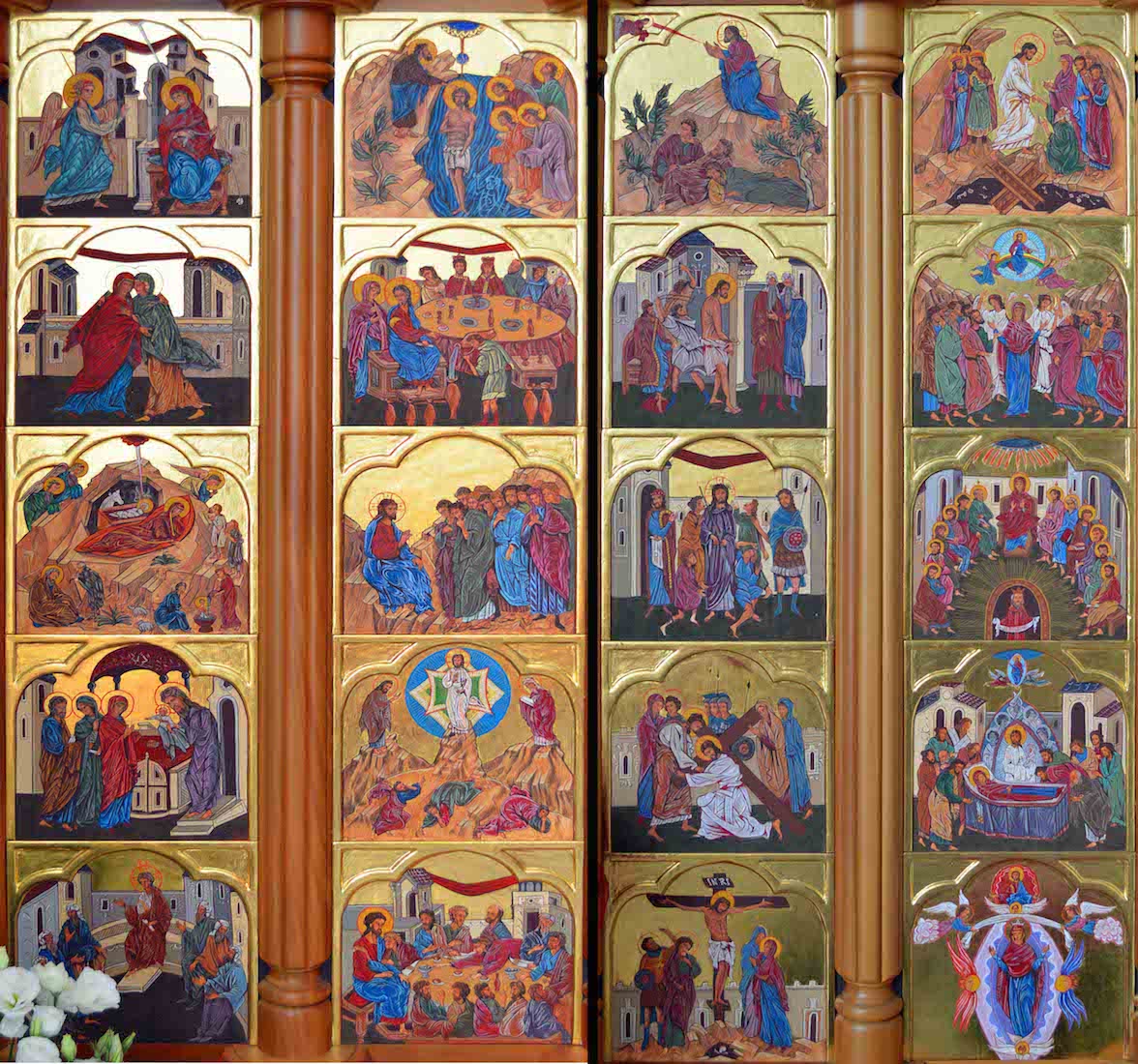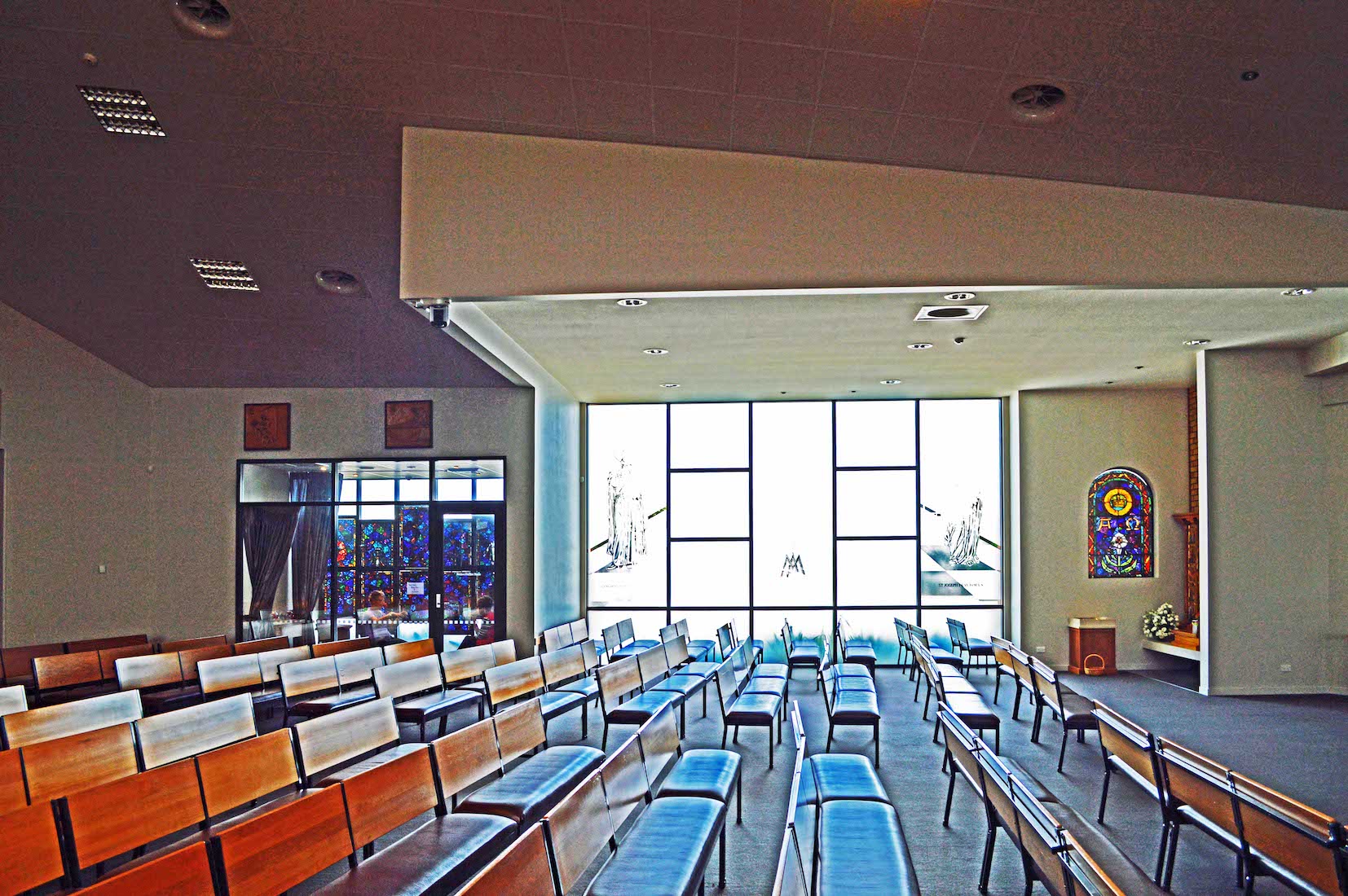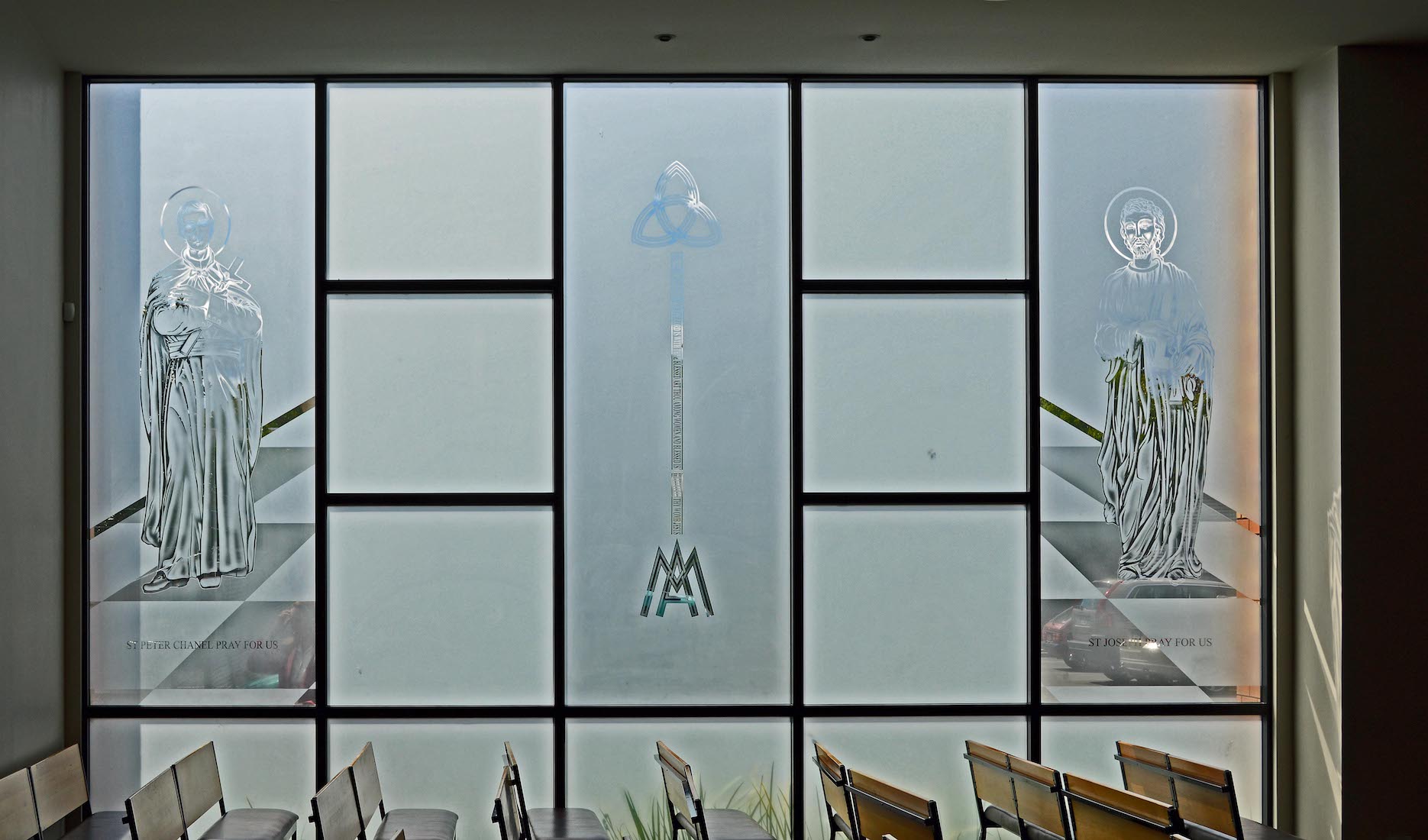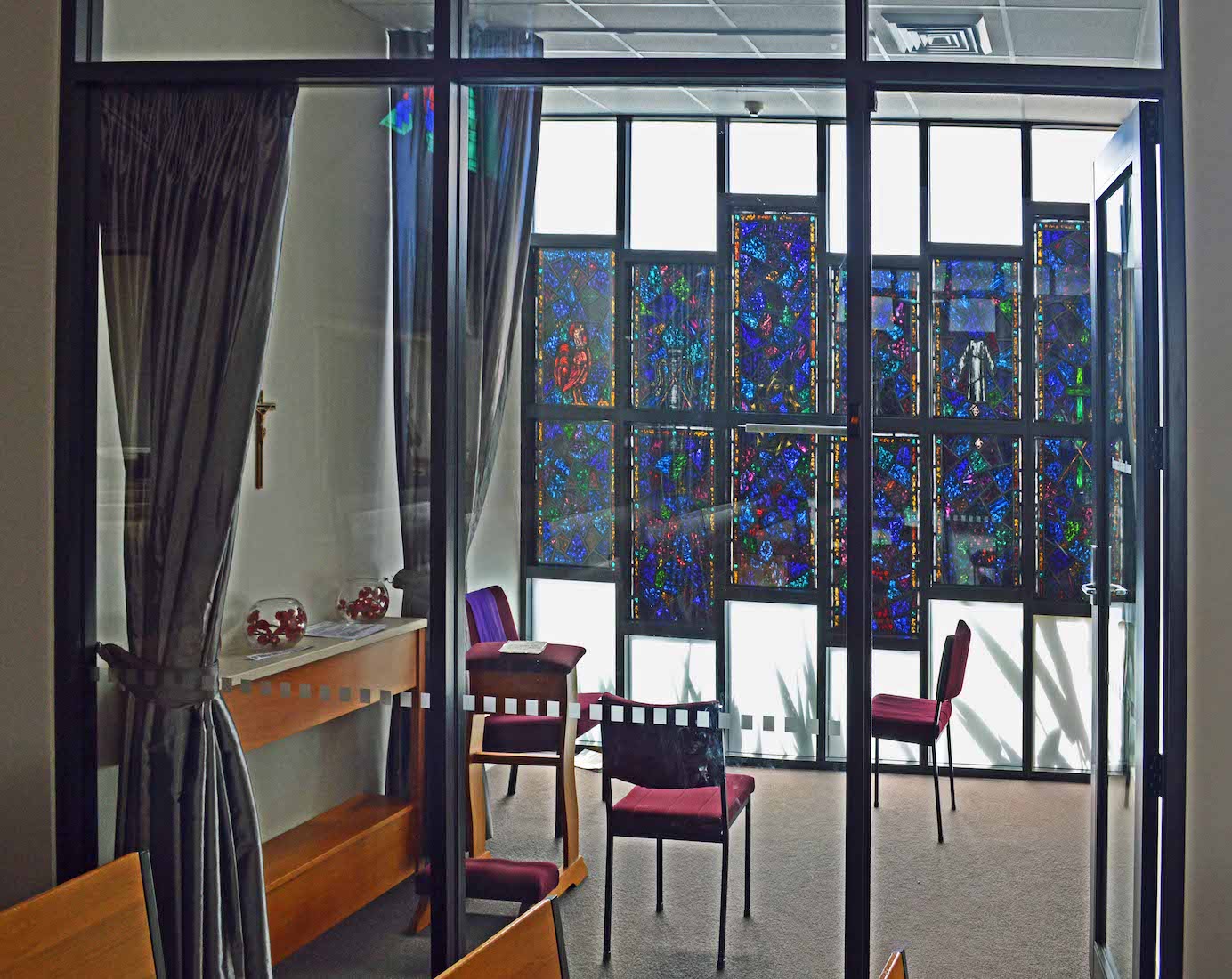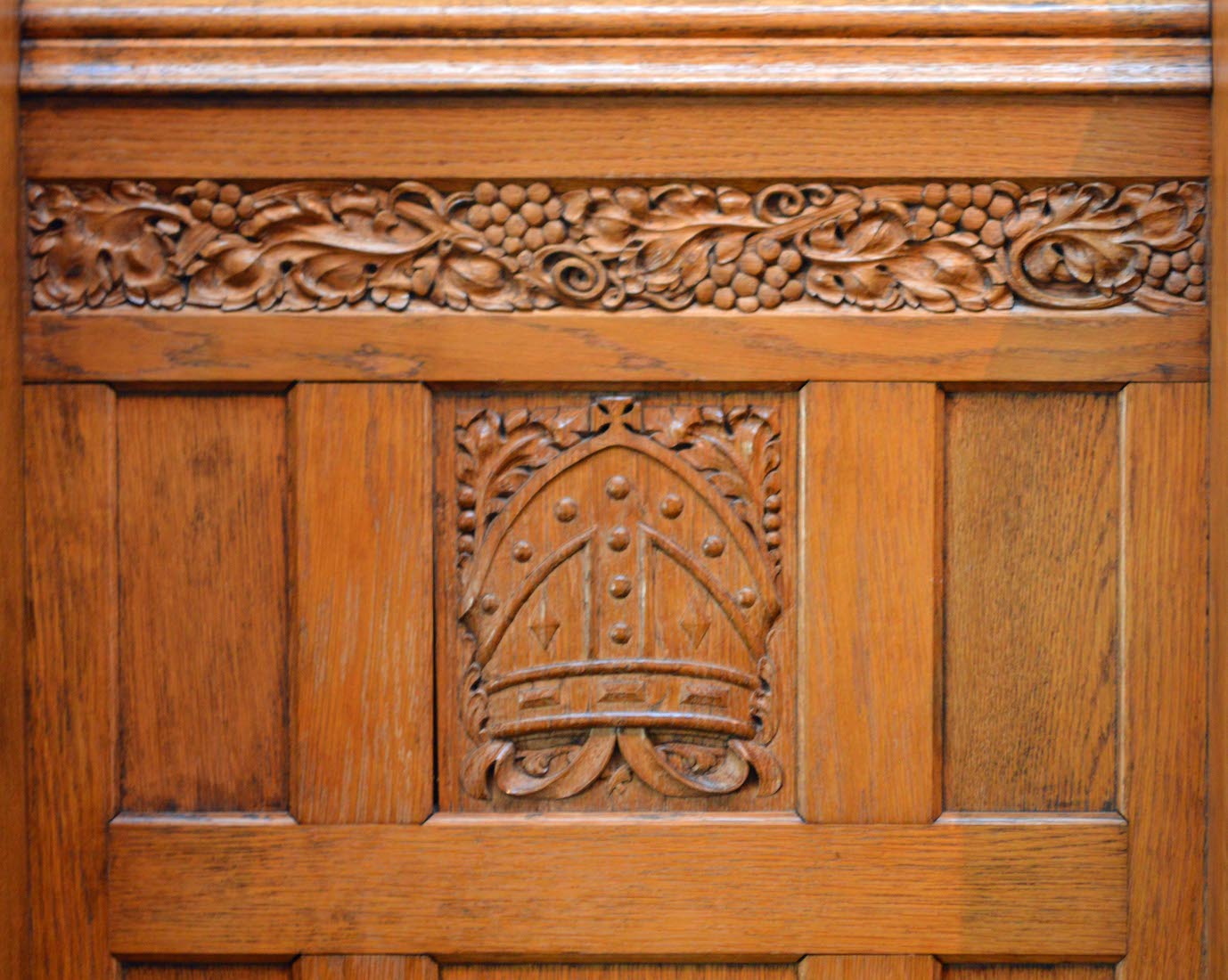
The cathedra is a fine old carved English oak chair which came to Hamilton in 1980 with Bishop Edward Gaines, the first Bishop of Hamilton. It originally came from St Benedict’s Church in Auckland. PLAN
42. ALTAR AND CRUCIFIX
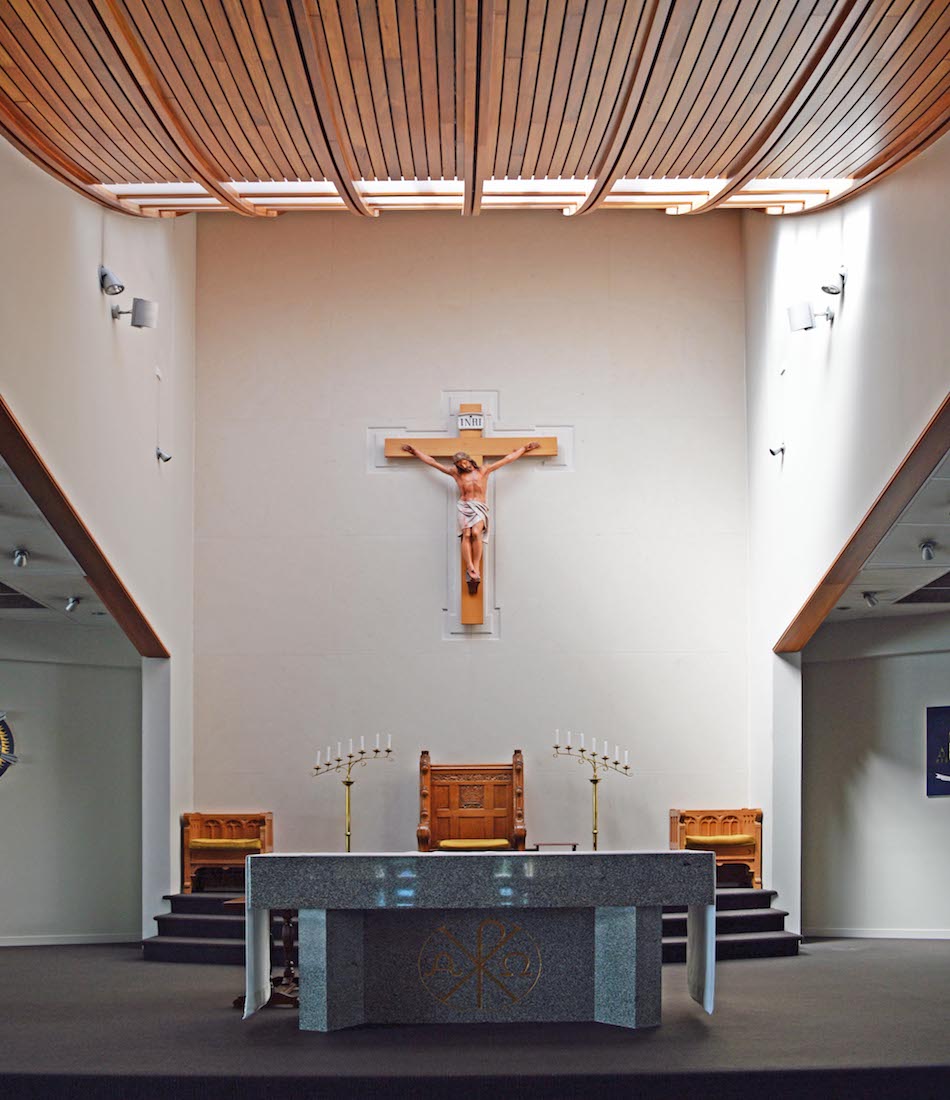
The Cathedral roof and skylight sweeps upwards above the centre of the sanctuary, bathing it in natural light.
43. ALTAR
The sturdy altar, made from Coromandel granite, is inscribed in gold with the Chi-rho symbol – the first two letters of the word Christ in Greek. The altar also bears the ancient Alpha and Omega Greek letters, emphasizing Christ’s divinity.
44. CRUCIFIX
The central symbol of Jesus on the Cross is directly opposite the Resurrection Window (which we will see later), set in the matching wooden pitched ceiling. The crucifix is a treasure from the previous churches, but has been repainted by Michael Pervan and mounted on a NZ kauri cross.
45. NORTH EAST – CHAPELS
Leaving the sanctuary, our attention turns to the Chapels. Behind the lectern is the Chapel of the Blessed Sacrament. In the centre is a memorial window and book. To the left is ‘Our Lady’s Chapel’ – the window of which we have already noted from the outside.
47. DIVINE MERCY
The painting is a modern devotion of Jesus, installed in a handcrafted frame to replicate the frame of the Icon of Mary in the narthex. From the diary of a young Polish nun, a special ‘Divine Mercy’ devotion began spreading throughout the world in the 1930s. The message is not new, but is a reminder of what the Church has always taught: that God is merciful and forgiving and that we, too, must show mercy and forgiveness.
48. EVANGELIST WINDOWS I
This Chapel has the much loved stained glass windows of the four evangelists. Here we see Luke and John, represented by the bull and the eagle. The windows are believed to have been made by Clarke’s Studio,Dublin, and installed in the original church in 1951.
49. EVANGELIST WINDOWS II
These windows depict Matthew and Mark, represented by the winged man and the lion. The large windows have survived various moves and have been carefully refurbished for the re-built Cathedral.
50. TABERNACLE
The Chapel of the Blessed Sacrament contains the Tabernacle, where the reserved elements of the Eucharist are stored. The Tabernacle was designed by Hamilton architect Doug Angus, and crafted locally in 1968. The pedestal reads ‘This is My Body’.
51. TABERNACLE DETAIL
The Tabernacle features brightly coloured enamel Eucharist symbols. These are: alpha and omega, grape leaves, the jug of oil, wheat, the lamb, chalice, pelican, fish, bread, and the Last Supper as the central image.
53. MEMORIAL WINDOW
The Memorial or Requiem Window, adjacent to Our Lady’s Chapel, is positioned above a Memorial Book with names of the parish’s departed going back to 1889, entered on the day of their death so they can be remembered in prayer. The window depicts the Tricetra (a Gothic device representing the Trinity), the scales and sword of judgment, the anchor (symbol of Christ), and the dove – the human soul winging to God.
54. OUR LADY CHAPEL WINDOW
This Chapel has a special window at left. The Our Lady window has the words Regina Caeli (Queen of Heaven) around a crown, the Alpha and Omega symbols, and a dominant central lily to depict purity and innocence.
55. ASSUMPTION WINDOW
The circular Assumption window is by Martin Roestenburg. It bears the letters MR (Maria Regina – or Martin Roestenburg!) and the 12 stars of the Apocalypse, symbolizing Mary as Queen of Heaven. I wonder what colours would show if it were backlit ... ?
56. OUR LADY STATUE
The wooden statue of Our Lady with her rosary beads was commissioned for the 1975 church. It has been refurbished and is resplendent in new wooden cabinetry, surrounded by 20 rosary items, executed by Michael Pervan. The association of Mary with the rosary dates from 1214 in a vision given to St Dominic.
57. MYSTERIES OF THE ROSARY
The 20 Mysteries of the Rosary tell the life of Mary from the Annunciation (top left) to her Coronation (bottom right), reading down the columns. The columns can be named (from left): The Joyful Mysteries, The Luminous Mysteries, The Sorrowful Mysteries, and The Glorious Mysteries.
58. NORTH ASPECT
Moving around from Our Lady’s Chapel, we come to the large North window, and then the Reconciliation Room.
59. NORTH WINDOW
These sandblasted windows with their images are also by Michael Pervan, and are linked to Mary. At left is St Peter Chanel – the local patron saint who had a tender love for Mary; at right, Mary’s spouse, Joseph; and at centre, an elegant Trinity design embellished with the words of the Hail Mary.


